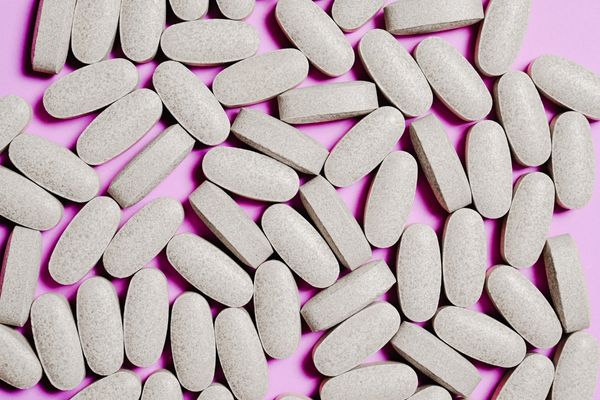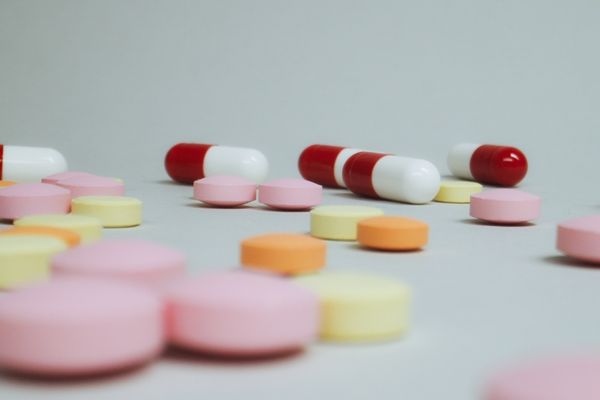Couples trying to improve their sex life usually ask, “Why does viagra not work for my husband?” One of the most widely prescribed treatments for erectile dysfunction is Viagra, which contains the active ingredient sildenafil (ED).
It is also occasionally used to address other problems with the male sex, such as early ejaculation (PE). The active component of Viagra, sildenafil, is also employed to treat pulmonary arterial hypertension (PAH), a type of high blood pressure that can impact the lungs.
Viagra usually begins to act within an hour of being taken at a standard dose on an empty stomach, making achieving and keeping an erection more straightforward.
Nevertheless, Viagra and other ED drugs aren’t always successful. Even after using their medicine, some men who take Viagra continue to have problems with erectile dysfunction and other aspects of sexual performance.
Most of the time, these problems can be resolved by altering how you take Viagra or by locating and treating additional causes that might be causing your problems with sexual function.
Viagra and other ED medications, including Cialis® (tadalafil), occasionally don’t function as intended are discussed below, along with what you may do if you still have trouble getting and maintaining an erection after using Viagra.
Fundamentals of Viagra for ED
It’s critical to understand how Viagra and related drugs truly perform in your body before discussing why they occasionally fail to treat erectile dysfunction.
Viagra is a PDE5 inhibitor medicine class member which increases blood flow to specific body areas, including the penis.
The flow of blood is the key to healthy erections. Your corpora cavernosa, two long masses of erectile tissue in your penis, receive a signal from your neurological system when you become aroused.
As a result, your penis’s arteries enlarge, allowing more blood to travel to the erectile tissue. The erectile tissue in your penis grows and firms up when blood rushes to it, resulting in an erection.
The blood arteries that supply your penis are partly controlled by the enzyme phosphodiesterase 5 (PDE5). PDE5 is inhibited by sildenafil, which helps to widen your blood vessels and encourage healthy blood circulation.
It’s important to remember that Viagra influences blood flow; it does not impact sexual arousal or desire.
Contrary to popular perception, Viagra does not also trigger spontaneous erections, which are erections that happen independently, without any sexual stimulus. Instead, it only improves blood flow, which makes the physical side of getting an erection easier.
Why Does Viagra Not Work For My Husband?
Viagra is a popular option for treating erectile dysfunction most of the time. Most men who use Viagra and other ED drugs report good outcomes, including better erections and more self-assurance in bed.
Yet, studies indicate that not all erectile dysfunction sufferers benefit from Viagra.
Men prescribed the 100mg dosage of Viagra are most likely to report an improvement in their erections, according to clinical trials of Viagra, which reveal benefits among 63 to 82 percent of men with erectile dysfunction.
There are some reasons why Viagra and other ED medications might not be successful in treating erectile dysfunction. Risks include misusing Viagra, taking a low dose, and utilizing the drug to treat erectile dysfunction (ED) that isn’t brought on by insufficient blood flow.
1. You Aren’t Applying Viagra Properly
To properly treat erectile dysfunction, Viagra must be used as directed. Viagra may be less effective than usual, take longer to act, or not significantly improve your erections and sexual function when misused.
To receive the optimum effects from Viagra, it is advised that:
- Take Viagra first before eating: After eating a substantial, high-fat meal, using Viagra may cause its absorption to be delayed, making it less effective during sex.
Try taking Viagra on an empty stomach if you typically take it with meals and realize it isn’t working as it should. - To start working, let Viagra sit for an hour: Viagra can be taken from 30 minutes to four hours before sexual activity. However, it usually works best when taken an hour before the planned sexual activity.
- Don’t take Viagra too early: Viagra loses a lot of its effectiveness after four hours, in contrast to tadalafil, which can continue to operate for 36 hours per dose. As a result, it’s advised to refrain from taking Viagra more than four hours before your intended sexual activity.
- Restrict your alcohol consumption: Whiskey dick, a temporary erectile dysfunction condition brought on by excessive alcohol consumption, may lessen the efficacy of drugs like Viagra.
Alcohol should ideally be avoided the nights you use Viagra. If you drink, keep it to one or two drinks per service. - Ensure you’re aroused sexually: Viagra causes your penis to receive more blood flow, but it has little impact on how sexually arousing you feel. Be sure you’re in the mood for sex before taking Viagra or any other erectile dysfunction drug.

2. You’re Taking Viagra At A Low Dosage
If you’re asking the question, why does viagra not work for my husband? Taking viagra at a low dosage could be another reason. The total sildenafil content of each pill in the Viagra and generic sildenafil ranges from 20 mg to a maximum dose of 100 mg.
If you’re taking Viagra at a lower dosage and discover that it isn’t entirely effective in treating ED (or that there is no improvement at all), talk to your doctor about increasing your dosage.
At a higher dose of Viagra, such as 50 mg or 100 mg, than with a dosage of 20 mg, more men report improvements, according to clinical trials.
The International Journal of General Medicine’s 2013 analysis of two studies demonstrated that men with ED who took a 100mg dose of sildenafil fared better than those who took a 50mg dose.
It’s recommended to speak with your doctor if you believe your Viagra dosage is too low. They might advise changing to a different ED drug or adjusting your Viagra dosage.
3. Your ED Is The Result Of A Basic Medical Condition
In general, Viagra works well in treating ED. However, Viagra may not be completely effective at restoring your capacity to achieve and maintain an erection if an underlying medical condition, such as diabetes or heart disease, brings on your erectile dysfunction.
Heart disease, diabetes, nerve damage, and high blood pressure are common physical factors contributing to erectile dysfunction. Your degree of sexual desire may be affected by hormonal problems, such as low testosterone, and you may not be able to get an erection with Viagra.
It is essential to discuss any underlying medical conditions you may have with your doctor if you suspect they may impact your ability to have an erection.
You are examining your testosterone levels to rule out low testosterone quickly, a significant reason for a poor sex drive. To help you maintain your sex desire and well-being, if you have low testosterone levels, your doctor may recommend testosterone therapy.
If necessary, either alone or in conjunction with ED medication, your doctor may provide the remedy to help you manage your symptoms and improve your health.
It is essential to discuss any underlying medical conditions you may have with your doctor if you suspect they may impact your ability to have an erection.
4. Your Sexual Performance Is Being Damaged By Porn
Unbelievable as it may seem, excessive porn viewing may hinder your ability to achieve and maintain an erection.
According to studies, erectile dysfunction is becoming more prevalent in younger men. A Cleveland Clinic survey found that by the time men reach the age of 40, about 40% of them have some erectile dysfunction.
Although a clear connection hasn’t been proven, some experts think that porn viewing may contribute to the rising incidence of ED among younger men.
Erectile dysfunction (ED) from porn, also known as porn-induced ED, can occur if you view porn regularly.
It may be beneficial to take a break from seeing any porn for a few weeks if you frequently watch porn or if you realize that your sexual preferences and expectations are beginning to change as a result of the porn you use.

5. The Correct Medicine For You Isn’t Viagra
Your sexual needs and general health may not be a good fit for Viagra. There are several erectile dysfunction drugs on the market, so Viagra isn’t your only choice.
Examples include avanafil (marketed under the brand name Stendra®, a more recent ED drug with a lower risk of some side effects), vardenafil (Levitra®), and tadalafil (the main ingredient in Cialis, a long-lasting ED drug).
Some of these drugs have unique benefits, such as Cialis’s capacity to relieve erectile dysfunction for up to 36 hours after each dose.
One of these drugs might be a better option for you than Viagra in some situations because of these benefits.
As each person has unique demands, there is no single “best” ED medicine. Talk to your doctor about trying a different ED drug if you feel that Viagra is just not the correct choice.
6. Psychological Reasons
Most cases of erectile dysfunction are brought on by underlying medical conditions, such as decreased blood flow or nerve damage in and around the penis.
Yet, some instances of erectile dysfunction might arise from mental conditions, including melancholy, low self-esteem, or sexual performance anxiety, a type of anxiety that can cause sex anxiety.
Viagra may not be beneficial if your ED is brought on by depression, anxiety, or a lack of sexual desire because it increases blood flow.
Instead, you might find that counseling or consulting a psychiatrist will help you successfully manage your mental health problems.
7. You’re Quitting Viagra Too Soon
The first time you take Viagra, it frequently does not work. Many Viagra users worry about the drug’s side effects and fear that it cannot function as intended, which raises the chance of developing sexual performance anxiety.
Try using Viagra at least a few times before you give up. If it doesn’t work, consult your doctor about increasing the dosage.
After a few uses, Viagra frequently becomes more effective as you grow accustomed to the drug and have confidence in its results.
8. You’re Eating Too Much
Large meals may hinder Viagra’s ability to enter the bloodstream, hurting its function. For Viagra to work at its best, you should try to have a light meal, preferably a few hours beforehand.
Avoid foods high in fat or carbohydrates because they slow down how quickly Viagra enters your bloodstream.
9. Low Testosterone Levels
Leydig cells in the testes create the male sex hormone testosterone, which is essential for developing male organs and maintaining sexual traits.
Male testosterone levels start to decline around 30, which can have several negative impacts. These include erectile problems, hair loss, mood fluctuations, and muscular loss.
When testosterone levels go too low, Viagra cannot stimulate adequate blood flow into the penis to compensate for the decline in hormone levels since it cannot replace testosterone. As a result, Viagra either stops functioning altogether or stops functioning as well as it should.
Conclusion
Sometimes, viagra does not work for your husband because of the things in the article. He might be taking it wrongly or sometimes not because of underlying diseases. It is best to visit a doctor to sort the issue out.







